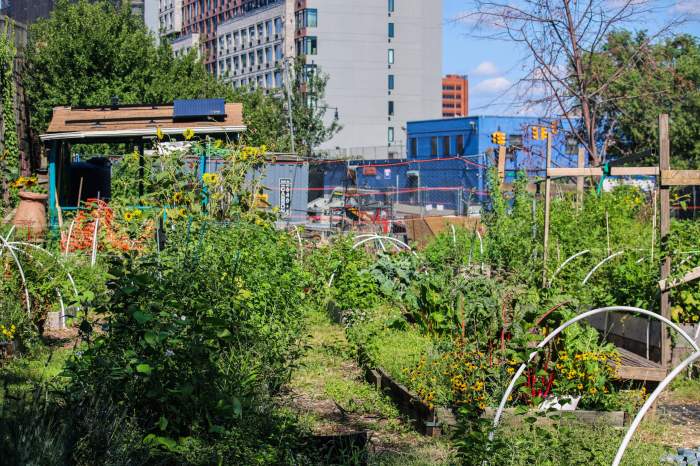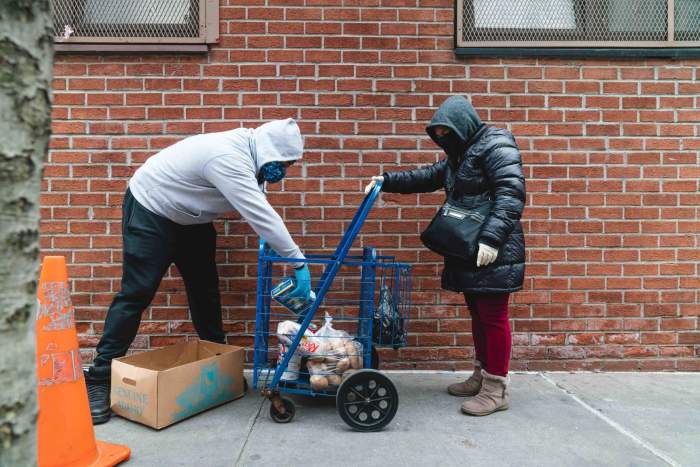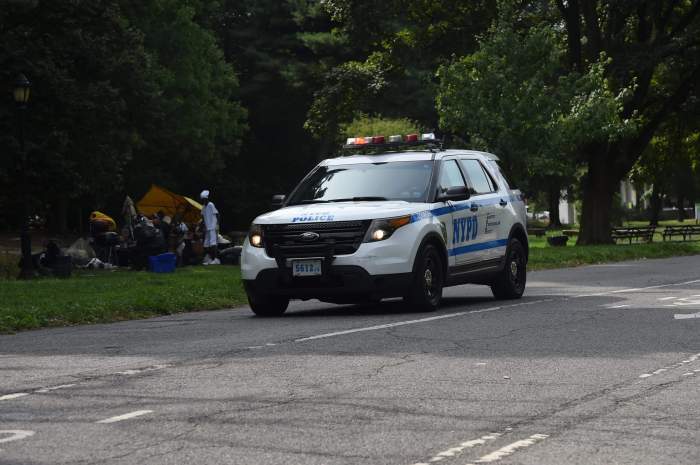Many families grappling with food insecurity have long dreaded the turn of the calendar to March 1. As of Wednesday, more than 30 million Americans saw a significant cut in their monthly food assistance, ending emergency allotments for low-income families on the federal Supplemental Nutrition Assistance Program (SNAP) that were expanded during the COVID-19 pandemic.
“What am I supposed to do now? These benefits were helping me feed my five kids and it feels like that safety net is gone,” said Genesis Gonzalez, a South Bronx resident who has been receiving SNAP benefits for six years. “You know how expensive eggs are? How expensive meat is? And the government thinks cutting these benefits now is a good idea?”
According to an August 2022 study from the Urban Institute, SNAP’s benefits kept 4.2 million people out of poverty since the fourth quarter of 2021, with the largest poverty reduction from the program for Black and Hispanic people.
Roughly 800,000 New York state households faced food insecurity between 2019 and 2021, a measure of the availability of food and individuals’ ability to access it, according to a recent report from state Comptroller Thomas DiNapoli. While food banks and nonprofits have attempted to drive down hunger in the state’s most food insecure counties like the Bronx, DiNapoli believes federal aid programs like SNAP and WIC (Women, Infants, and Children) should be expanded for low-income, food-insecure households.
“Federal aid helped New Yorkers put food on the table during the pandemic, but some relief programs are ending as inflation and other pressures are pushing household budgets to their limit,” DiNapoli said. “With all the challenges people are facing during these difficult times, we should ensure New Yorkers don’t go hungry. Our nation’s nutrition programs should be expanded to help those who are struggling to feed themselves and their families.”
NYC food pantries quickly becoming a hot spot for food shoppers amid 40-year high food prices
Eighteen states have already ended the extra SNAP benefits, impacting an estimated 12 million Americans. The remaining 32 states and the jurisdictions of Washington, D.C., Guam and the U.S. Virgin Islands followed suit with decreasing SNAP benefits on March 1. Without an expansion or extension for these program benefits, DiNapoli believes food insecurity may grow.
The average household will lose $95 a month for groceries, according to a study from the Center on Budget and Policy Priorities. Depending on other factors, including family size and income, some recipients will lose hundreds of dollars a month in food assistance.
Food insecurity is linked with rates of poverty, which in New York has ranged from a low of 5.7% to a high of 24.4%, according to a December 2022 report from DiNapoli’s office. In the Bronx, where 1 in 4 experience food insecurity, the poverty rate hovers around 27% — 40% reside in the South Bronx.
Black and Hispanic New Yorkers are most likely to report food insecurity, and according to the U.S. Census data compiled in the comptroller’s report, 22% of Hispanic and 21% of Black New Yorkers were considered food insecure from 2021-2022. And households with children are experiencing higher rates of food insecurity, with 13% considered food insecure last year, a rise from 7% in 2021.
Inflation, particularly the rise in food price has been a crunch on consumer wallets for the past two years. Food prices alone are up 10.1% from a year ago, according to the U.S. Bureau of Labor Statistics.
“You want to put food on the table, but wages aren’t high enough and food is too expensive,” said Howard Johnson, who lives in Melrose and has been receiving SNAP benefits for nine years. “We need help to feed our families and ourselves and that issue is only going to get worse if you’re not helping the hungriest of your citizens.”
























